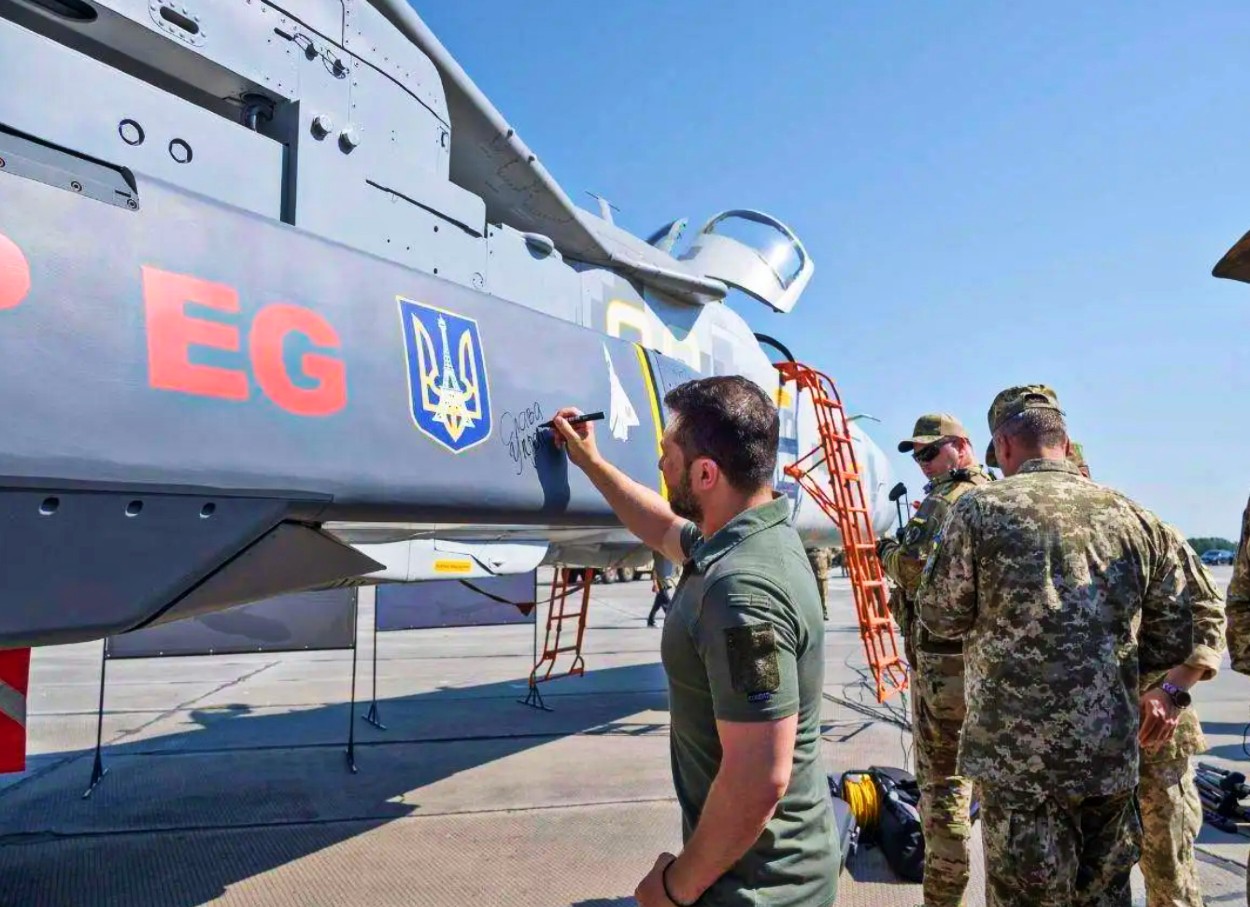Ukraine has been requesting Germany for the long-range Taurus cruise missiles for months, only to be met with stiff reluctance from the Scholz administration. To solve that problem, the British are now making an offer that could save the chancellor’s bacon.
The United Kingdom has proposed a swapping arrangement for Berlin to overcome its hesitation in arming Ukraine with long-range missiles, Handelsblatt reported.
Germany could supply Taurus cruise missiles to the UK military in exchange for the UK providing its own Storm Shadow long-range missiles to Ukraine, which the Ukrainian Air Force has already deployed.
London allegedly forwarded this swap proposal to Berlin a few weeks ago. However, neither side has made a decision or an official announcement on the matter yet. As questions were raised after the German publication published the report, the German Chancellor’s office declined to comment.
The report said that the Olaf Scholz administration was nonetheless studying the British proposal.
Ukraine has been making a case for long-range missiles to strike targets deep inside Russian territory for several months now. Although NATO allies Britain and France started supplying their Storm Shadow/SCALP EG missiles to Kyiv’s forces, Germany has remained hesitant in the face of repeated Ukrainian appeals, fearing an escalation with Russia.
For instance, French President Emmanuel Macron announced on January 16 that his country plans to deliver an additional 40 SCALP missiles and hundreds of other bombs to Ukraine. However, taking a completely different route, the German legislators voted to turn down the transfer of Taurus missiles on January 17.
The proposal, introduced by the center-right opposition Christian Democrats, faced a resounding rejection in the Bundestag, with 485 votes against and only 178 in favor. Only two members outside the opposition CDU/CSU faction supported the proposal.
Despite many German lawmakers supporting sending Taurus missiles to Ukraine, they voted against the resolution due to the perceived political gamesmanship. Since the proposal was turned down in the Bundestag, the final decision now rests with the Scholz administration.
Moreover, speculation is that the British proposal may finally find widespread support inside Germany. An official from the British Ministry of Defence responded to a request for comment by saying that the UK and its allies, including Germany, are still cooperating to provide Ukraine with the most significant possible arsenal to protect its borders.
While the British proposal may be intriguing, it is not the first time a swap arrangement has been introduced for resupplying Ukraine’s military. Previous reports suggested that the United States was buying artillery shells from countries like South Korea and Japan for transfer to Ukraine, given their reluctance to send military supplies to Kyiv directly.
The latest German rejection of the proposal to supply Taurus long-range cruise missiles to Ukraine marks a significant setback for Kyiv, which has persistently sought Germany’s support. On their part, German officials have maintained that transferring these missiles would not be a game-changer for Kyiv anyway.
German Reluctance To Send Taurus In Perspective
Countering German fears, several officials and analysts have pointed out that the supply of similar long-range missiles from the UK and France did not cause escalation with Russia. The Storm Shadow/SCALP missiles, with a range exceeding 155 miles, have allowed Ukraine to target warehouses, repair depots, and bridges in regions under Russian control.
The British Storm Shadow and the French SCALP are similar to the Taurus missile, but the German missile has some advanced features, which is where the German hesitation emanates. For instance, it has a more refined and target-optimized MEPHISTO (multi-effect penetrator) warhead that may be more effective at breaking through and shattering bridge spans.
An apparent distinction between the missiles is found in their engines. The Taurus has a more modern turbofan engine than the Storm Shadow and SCALP, outfitted with turbojets. Moreover, the Taurus has a more extended range owing to the turbofan design, which is typified by a front fan that effectively channels air through the engine core.

With an official range of more than 310 miles, Ukrainian forces may be able to attack Russian positions located throughout Crimea and eastern Ukraine with the Taurus missile. This is what Germany fears, mainly due to its proximity to Russia compared to its allies.
Another concern for Germany is that a Taurus would end up in Russian hands. The defense sector and the Chancellery fear the Russians will learn about and counter Taurus.
Germany plans to continue employing the Taurus until the middle of the 20th century, while London and Paris are already working on future missile replacements. Hoffmann said the platform will receive a Mid-Life Upgrade instead of a Taurus replacement.
In addition to “better GPS and other software updates for greater capabilities,” this upgrade will not result in any physical modifications to the missile. The stakes for Germany are, thus, higher than they have been for the UK or France.
In the summer of 2023, the UK became the first NATO country to arm the Ukrainian military with long-range missiles, followed by the French. Despite the building pressure, Germany has refused to give in. However, with burgeoning pressure, the British proposal could greatly help.
The latest report emphasized that Scholz could see a deal with the UK as a chance to address a pressing issue since disagreements about the delivery of Taurus have been raging for several months within the ruling coalition in Germany and among states that back Ukraine.
The Chancellor is not in a rush to transfer such missiles to Kyiv just yet, according to the publication, since “he fears that German weapons with a range of up to 500 kilometers can attack targets on Russian territory.”
- Contact the author at sakshi.tiwari9555(at)gmail.com
- Follow EurAsian Times on Google News